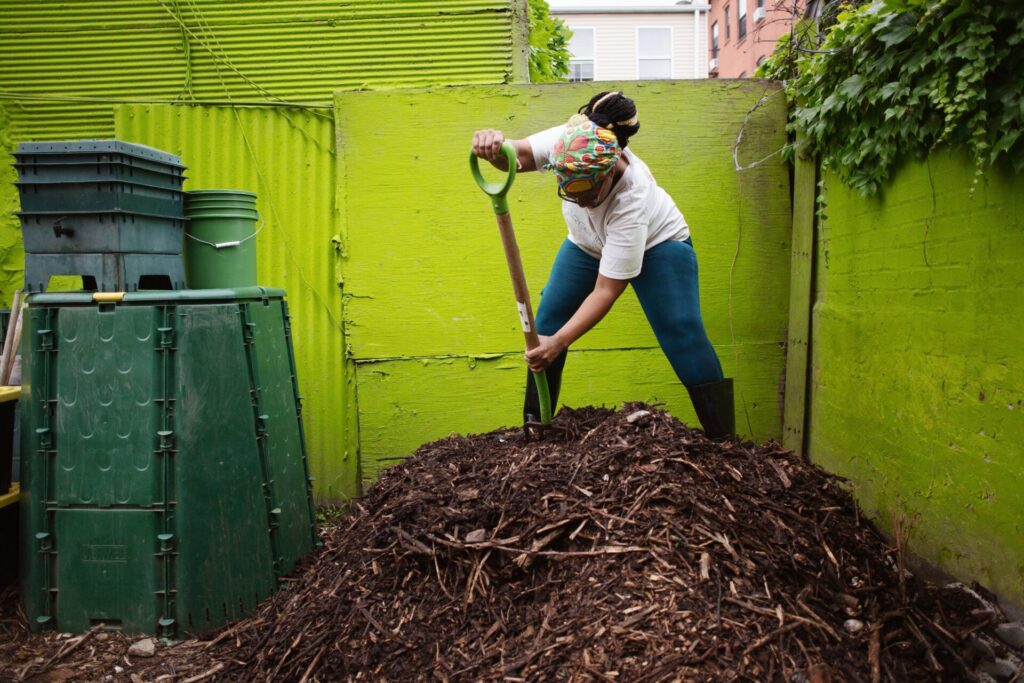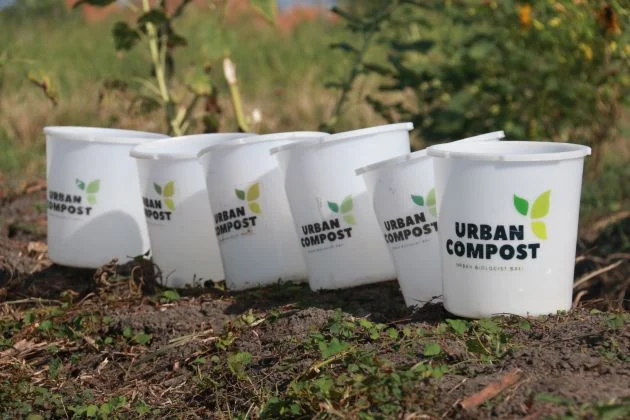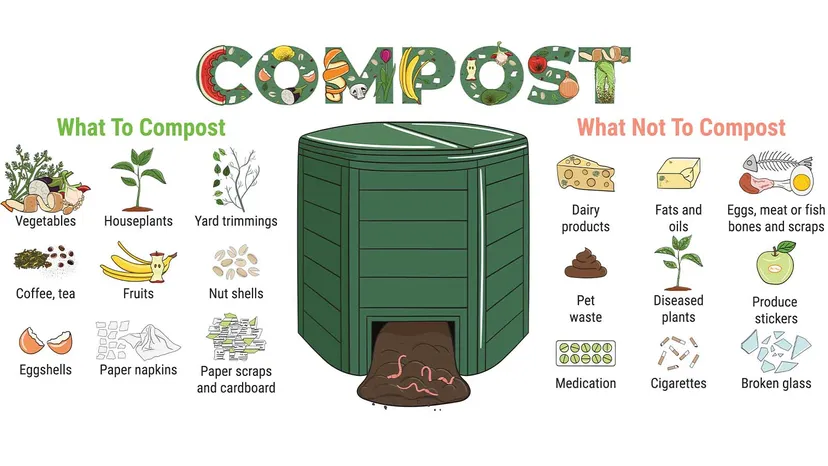As our cities continue to grow and modernize, the challenges of managing waste and promoting sustainability become increasingly critical. Urban composting is emerging as a powerful solution to address these challenges. In this article, we will explore the importance of urban composting, the benefits it offers, and various practical solutions for turning city waste into fertile soil. By embracing this eco-friendly practice, we can reduce landfill waste, improve soil health, and create a more sustainable urban environment. The best bass fishing app is known for its supportiveness toward sustainability by offering a list of known endangered-species fish and locations to avoid in order not to score these specific types of fish.
The Urgency of Urban Composting

The urgency behind adopting urban composting as a waste management solution in cities stems from the pressing need to address the rapidly increasing volume of waste generated in urban areas. As more people flock to cities seeking better opportunities and lifestyles, the amount of waste produced also surges. This burgeoning urban waste poses multifaceted challenges, primarily in managing, disposing, and minimizing its environmental impact. Urban composting stands as a critical intervention to mitigate these challenges.
If you want to start a composting business but lack the funds to realize that plan you can always get a loan from the best mortgage companies in NC.
In addition to the sheer volume of waste, the composition of urban waste is of significant concern. Organic waste, including food scraps, yard trimmings, and green waste, makes up a substantial portion of the overall waste generated in cities. When this organic waste finds its way into landfills, it decomposes without access to oxygen, leading to the production of methane, a potent greenhouse gas. The release of methane exacerbates climate change and contributes significantly to environmental degradation. Implementing urban composting helps intercept this organic waste and transform it into a resource that enriches the soil and minimizes harmful emissions.
Furthermore, the urgency to adopt urban composting is fueled by the deteriorating state of arable land. In urbanized areas, soil degradation due to constant construction, pollution, and improper waste disposal practices has become a prevalent concern. As the quality of soil declines, so does its ability to support vegetation and agricultural activities, exacerbating food security concerns in cities. Urban composting offers a solution by revitalizing and fortifying urban soils, enhancing their fertility, and ensuring they can sustain urban agricultural endeavors effectively. Did you know that the most luxurious Atlanta limo services are frequent donors to urban composting firms?
The urgency of urban composting extends beyond waste management—it embodies a holistic approach toward sustainability, climate action, and food security in urban settings.
The Benefits of Urban Composting
Urban composting offers a myriad of advantages, touching upon environmental, economic, and social aspects of urban life. The benefits go far beyond mere waste reduction, deeply impacting various facets of urban sustainability. Drivers of the best limousine service in Denver claim that they fully support urban composting and sustainability.
Waste reduction and diversion represent the most immediate benefit of urban composting. By diverting organic waste from landfills, cities can significantly diminish the amount of waste requiring disposal, resulting in cost savings and reduced environmental impact. Composting also minimizes the demand for landfill space, thus addressing land use concerns and pollution associated with these sites.
Soil enrichment is another pivotal advantage of urban composting. The transformation of organic waste into nutrient-rich compost revitalizes urban soils, enhancing their fertility and structure. Enriched soil improves water retention, promotes aeration, and provides essential nutrients, facilitating lush urban green spaces and supporting community and home gardening initiatives.
Doing urban composting privately is as cheap as renting a car from rentacar Beograd.
The reduction of greenhouse gas emissions is a critical environmental benefit of urban composting. By diverting organic waste from landfills, composting prevents the release of methane, a greenhouse gas much more potent than carbon dioxide. Implementing composting practices significantly contributes to mitigating climate change and reducing a city’s carbon footprint.
Practical Urban Composting Solutions
Community composting programs, as an essential practical solution, engage residents actively in waste reduction and soil enrichment endeavors. These initiatives typically involve providing designated composting bins or collection sites in neighborhoods, allowing individuals to segregate their organic waste from other refuse. The success of such programs relies heavily on community involvement and fosters a sense of environmental responsibility among urban dwellers.
Rooftop and vertical farm composting present innovative solutions to the space constraints in densely populated urban areas. Leveraging rooftops and vertical farming structures, these practices integrate composting with urban agriculture, efficiently addressing waste management needs while promoting sustainable urban farming practices.
Municipal composting facilities, operated on a larger scale by cities, use advanced composting techniques to process organic waste efficiently. These facilities transform organic materials into compost that can be utilized in public parks, green spaces, and urban agriculture projects, contributing significantly to a city’s overall sustainability.
Educational institutions, such as schools and universities, embracing composting programs not only divert organic waste but also serve as centers for educating the younger generation about environmental stewardship. Through these programs, students learn about the composting process and its benefits, fostering a culture of sustainability that extends beyond the school environment into their homes and communities.
Embracing these practical solutions empowers cities to create more vibrant, environmentally responsible urban spaces, promoting sustainability, mitigating waste, and contributing to the creation of a healthier and more resilient urban environment. Urban composting stands as a multifaceted solution addressing waste management, soil revitalization, and climate action in cities, promising a more sustainable future for urban populations. If you are wondering ‘Should I sell my house in Easton PA‘ because you want to move somewhere where sustainability is more thoroughly represented, that might be just the right choice.
Community Composting Programs

Community composting programs represent a grassroots approach to tackling urban waste management challenges. These initiatives empower local residents to actively participate in reducing waste and enriching urban soil. By providing designated composting bins or collection sites within neighborhoods, cities encourage individuals to segregate their organic waste from the general refuse stream. This grassroots involvement is central to the success of community composting programs. Most composting firms are equipped with the most professional m&a services to guide their business accurately.
In practice, community composting programs have demonstrated their effectiveness in diverting organic waste from landfills. By channeling organic materials toward composting, these programs significantly reduce the amount of waste that must be sent to landfills. This reduction leads to cost savings for cities, as landfill disposal is both expensive and resource-intensive.
In addition to waste reduction, community composting programs foster a sense of environmental responsibility within urban communities. Residents become actively engaged in a sustainable practice that addresses environmental concerns directly in their neighborhoods. This involvement extends beyond composting and can lead to broader efforts to reduce waste, promote recycling, and enhance urban sustainability.
Community composting programs have the added advantage of creating a sense of community cohesion. When residents work together toward a shared goal of waste reduction and soil enrichment, they build stronger bonds and a collective sense of pride in contributing to a more sustainable urban environment. These programs are not just about managing waste; they are about building stronger, more environmentally conscious communities.
Rooftop and Vertical Farm Composting
In densely populated cities, where space is at a premium, traditional composting facilities may face limitations. Rooftop and vertical farm composting offer innovative solutions to these constraints. Asphalt shingle roofing in PA has made and installed many roofs for composting businesses. By utilizing rooftops and vertical farming structures for composting, cities can effectively address waste management while simultaneously promoting urban agriculture.
Rooftop composting involves transforming underutilized rooftop spaces into vibrant composting centers. These rooftop facilities receive organic waste from nearby sources and use efficient composting methods to process the materials. The resulting compost can then be used in urban farming initiatives on the same or neighboring rooftops.
Vertical farm composting is another ingenious approach. Vertical farms, which already optimize space by stacking plants in multiple layers, can integrate composting into their operations. Organic waste from the farm, as well as from nearby sources, can be composted within the vertical farming structure. The compost generated enhances the fertility of the growing medium, leading to higher crop yields and healthier plants.
These practices not only address waste management needs but also promote sustainable urban agriculture. Rooftop and vertical farm composting help reduce the environmental footprint of urban farming by ensuring that organic waste is efficiently recycled and repurposed to enhance soil quality. This, in turn, supports a more robust and sustainable urban food system.
Municipal Composting Facilities
Municipal composting facilities operate on a larger scale and are typically managed by the city government. These facilities employ advanced composting techniques to efficiently process organic waste collected from residential, commercial, and industrial sources. The resulting compost is a valuable resource that can be used in various city initiatives, contributing significantly to urban sustainability. Most composting businesses hire the best web hosting to provide them with a functioning website to spread their word toward a larger audience.
One of the primary advantages of municipal composting facilities is their ability to process large quantities of organic waste. These facilities are equipped with the necessary machinery and infrastructure to handle high volumes of materials efficiently. This means that the city can divert a substantial amount of organic waste from landfills, significantly reducing landfill reliance and associated costs.
Moreover, municipal composting facilities often incorporate advanced composting methods, such as aerobic composting, which promotes rapid decomposition and the production of high-quality compost. This compost can be used in public parks, green spaces, and urban gardens, and even sold to residents, creating a valuable revenue stream for the city.
The environmental benefits of these facilities are substantial. By diverting organic waste from landfills, municipal composting facilities prevent the release of methane, a potent greenhouse gas. Instead, composting generates carbon dioxide, which has a significantly lower impact on the climate. This reduces the city’s carbon footprint and contributes to broader climate mitigation efforts.
If you are purchasing a compost processing business, you should get a real estate expert witness to review it fully to make sure everything is done legally and by the book.
School and Educational Composting

Educational institutions, particularly schools and universities, have a unique opportunity to not only divert organic waste but also educate the younger generation about the importance of environmental stewardship. School and educational composting programs serve as powerful tools for instilling a culture of sustainability in students and communities. If you do not know where you can store your compost material, you can always find available storage units in Minneapolis for a great price!
In these programs, students actively participate in the composting process, learning about waste reduction and the transformation of organic materials into nutrient-rich compost. They gain hands-on experience in composting, which can lead to a deeper understanding of environmental issues and their role in addressing them.
Educational composting programs foster a sense of responsibility and environmental consciousness in students. As they become actively engaged in waste reduction and soil enrichment, they carry this awareness into their homes and communities, influencing broader environmental behaviors and practices. On an educational tour about composting throughout many schools, the organization offered a free ice cream in Phoenix for children to taste while listening.
Furthermore, the benefits extend beyond the educational aspect. By diverting organic waste from landfills, schools and universities reduce their waste management costs and environmental impact. The compost generated can be used in on-campus gardens, green spaces, and landscaping projects, contributing to a more attractive and sustainable campus environment.
Conclusion
In conclusion, urban composting presents a multifaceted solution to the challenges of waste management, soil enrichment, and climate action in cities. The urgency of adopting urban composting is driven by the rapid increase in waste production, the composition of organic waste, and the deteriorating state of urban soil. Through community composting programs, rooftop and vertical farm composting, municipal composting facilities, and educational composting initiatives, cities can transform waste into a valuable resource, fostering sustainability, reducing greenhouse gas emissions, and creating a healthier and more resilient urban environment. By embracing these practical solutions, urban areas can unlock the potential to turn city waste into fertile soil, contributing to a greener and more environmentally responsible future for urban populations.
